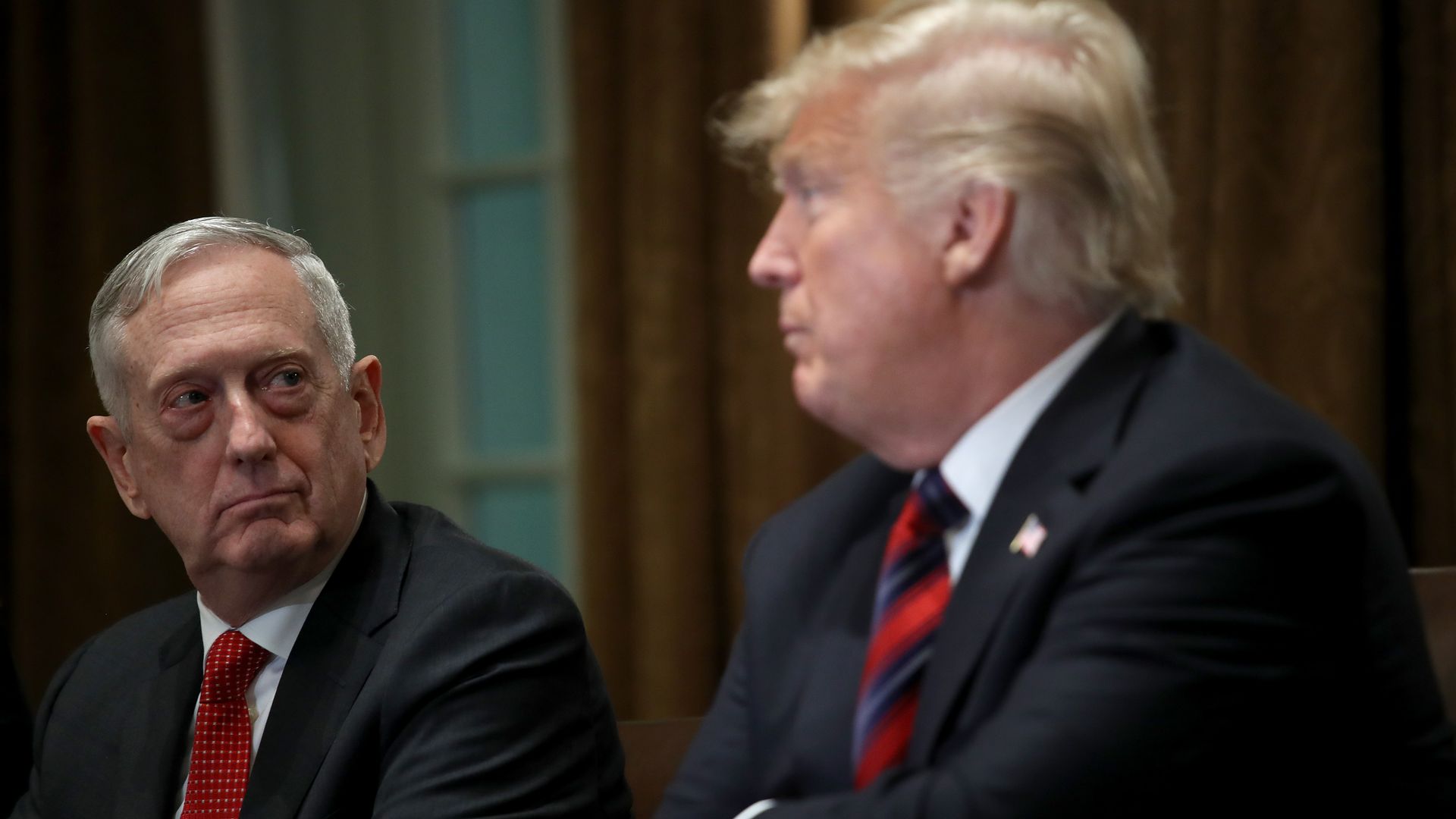Dec 21, 2018 - Politics & Policy
Expert VoicesTrump's sudden Syria decision undermines his own foreign policy team
Add Axios as your preferred source to
see more of our stories on Google.

Defense Secretary Mattis with President Trump during a meeting with military leaders in the Cabinet Room on Oct. 23, 2018, in Washington, D.C. Photo: Win McNamee via Getty Images
